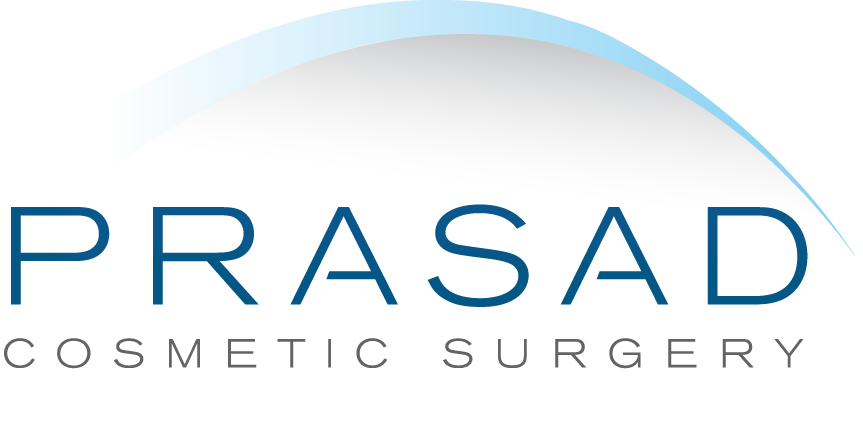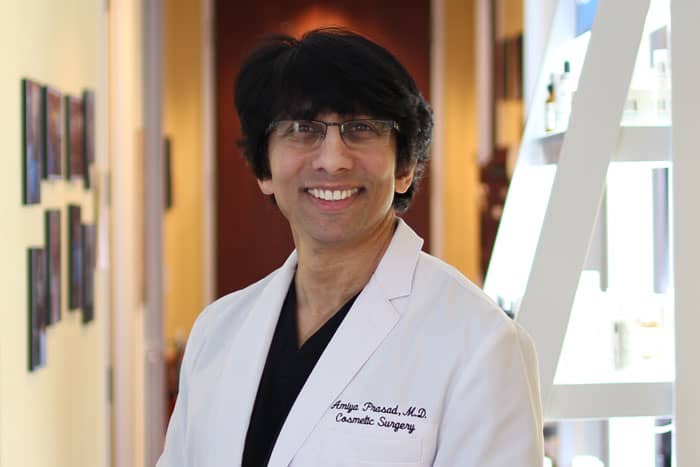When it comes to loose skin under the neck, it is critical to determine what causes this appearance, which include: bone volume loss, skin quality and quantity, as well as neck position and posture. With so many creams, devices, sutures, threads, and procedures claiming to be the best solution for loose neck skin, deciding on the best option or options for you can be difficult. I’ll go over how I evaluate this area for people with this concern on a daily basis.
I begin with reviewing their medical history, and performing a physical exam. I frequently learn that a patient has had previous procedures such as neck liposuction and skin heating. The purpose of the evaluation is to determine:
- Skin thickness
- The presence or absence of excess fat
- The relative skin elasticity
- The relative volume of excess skin
- The presence or absence of platysmal bands
- The extent of facial bone volume loss, in particular the cheekbones, the chin, jawline and jaw angle
The neck skin is different from the skin of the face, so it ages differently. The skin on the neck is thinner than that on the face’s thicker areas, such as the cheeks, jawline, and chin. The neck also has less oil and sweat glands than the face, which affects moisturization of the skin.
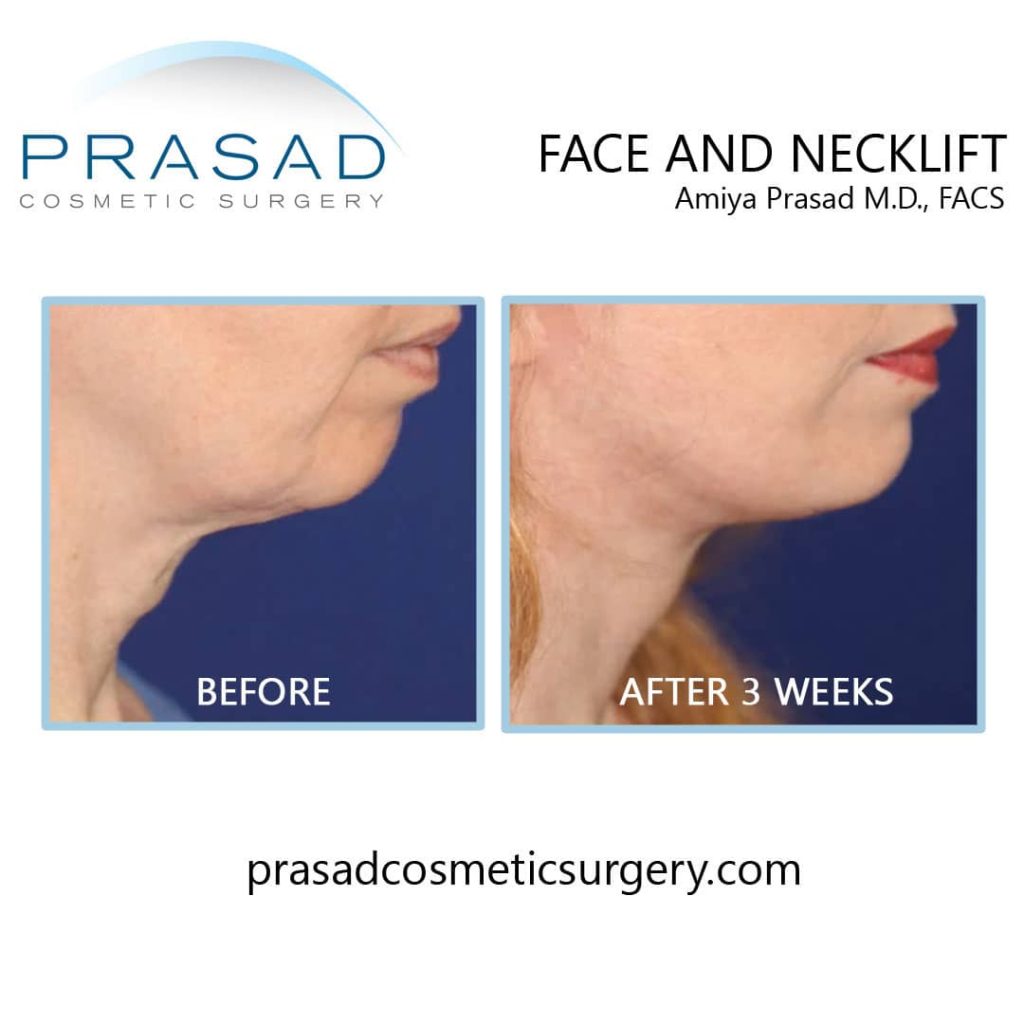
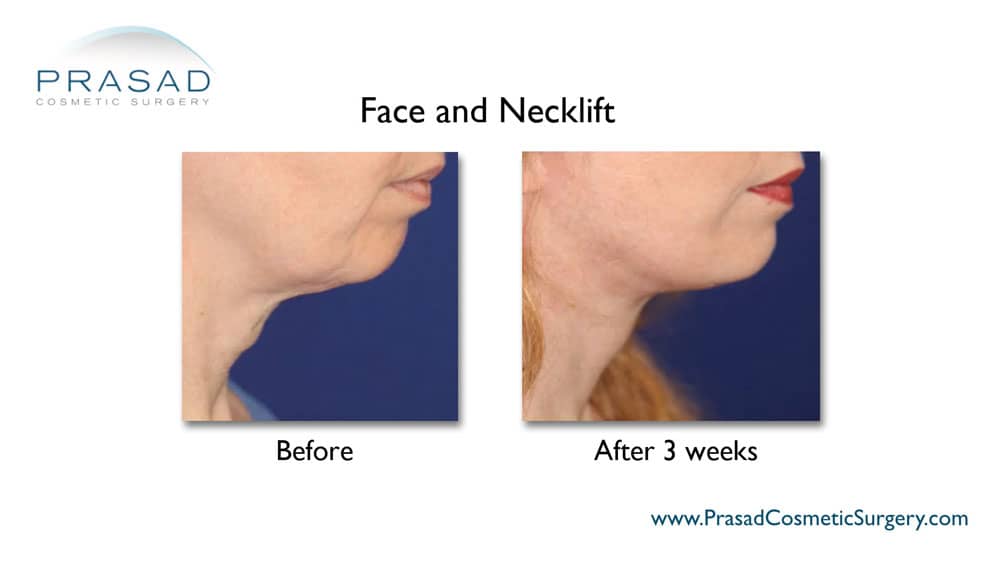
Loose Neck Skin at 40
In the case of a person in their early to mid-40s who has some skin laxity but not enough to warrant face or neck lifting surgery, I believe better structural definition is desired. I always tell my patients that a young face is not a tight face, and a beautiful face is not a tight face — it’s all about definition.
How to Tighten Neck Skin Without Surgery
If the problem is skin quality such as texture and tone, laser treatment. and PRP can be beneficial. PRP is a concentration of wound healing growth factors that stimulate collagen and increase blood supply derived from your own blood. PRP improves the quality and texture of the skin on the neck by stimulating collagen and fat cells beneath the skin. Improving skin quality with PRP is best done with regular treatments to maximize results.
To improve the neck skin, we also use lasers such as fractional CO2, Erbium, Nd:YAG, and the Q-switch laser.
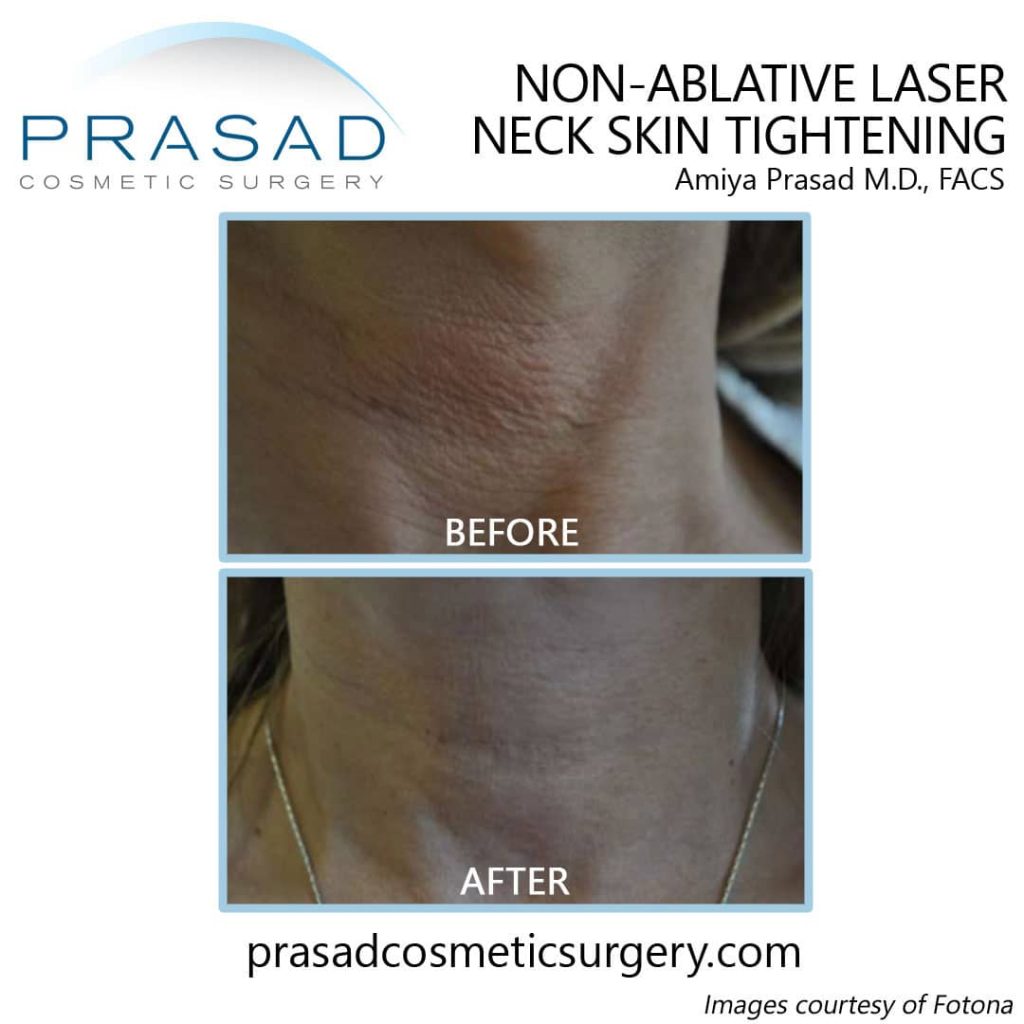
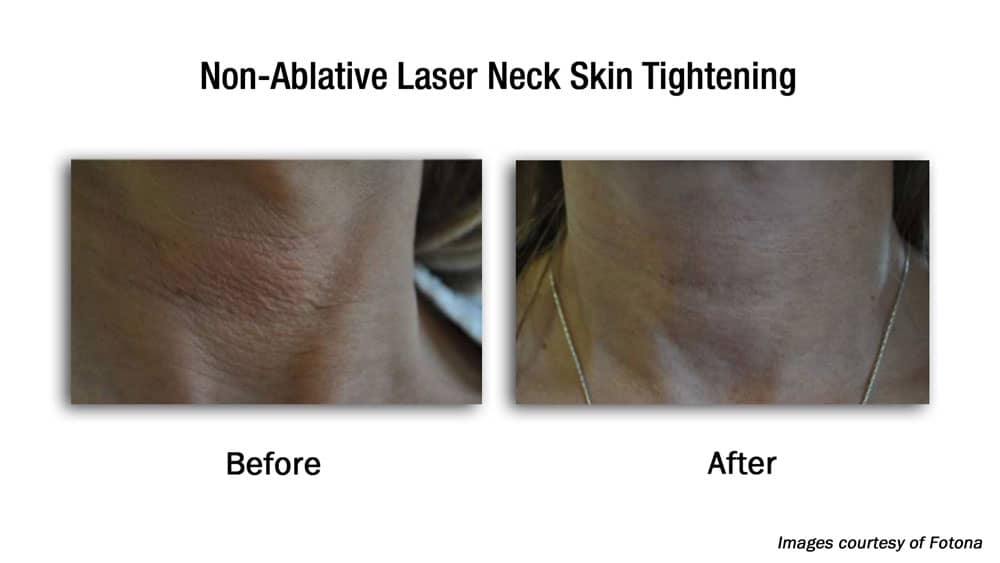
Non-ablative laser toning with the Nd:YAG laser is a popular procedure in our practice. The laser can treat the deeper layers of skin, while leaving the top layer of skin intact. I actually created a protocol where I combine PRP delivery to the skin after laser treatment to maximize skin quality through collagen stimulation.
Pelleve and other radiofrequency devices can also help with skin toning, and tightening around the neck, as well as inducing a collagen response. People with darker skin, such as olive Mediterranean skin types, Asian skin, and darker skin prone to hyperpigmentation from lasers can benefit from radiofrequency devices.
How to Tighten Neck Skin with Surgery
The relative volume of neck skin, as well as its elasticity are evaluated to see if a minimally invasive procedure known as suture suspension may be beneficial.
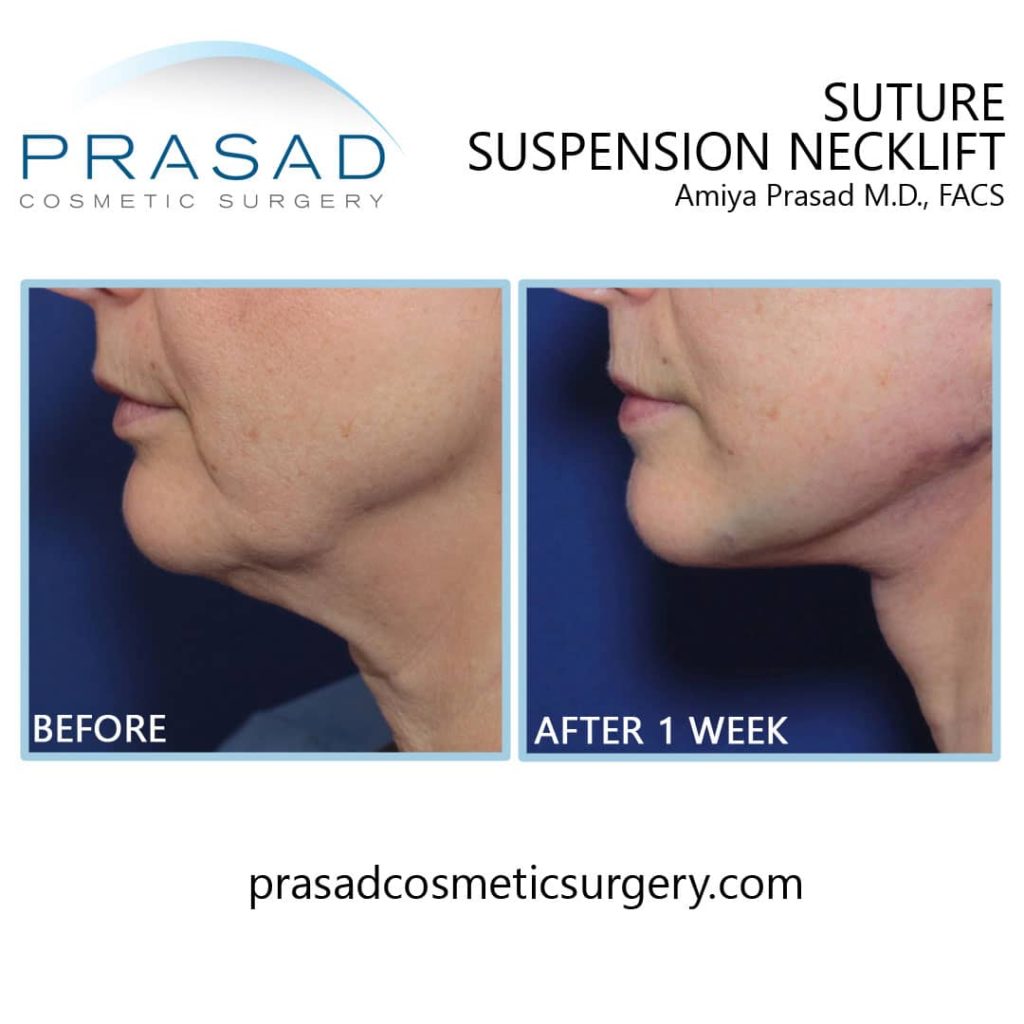
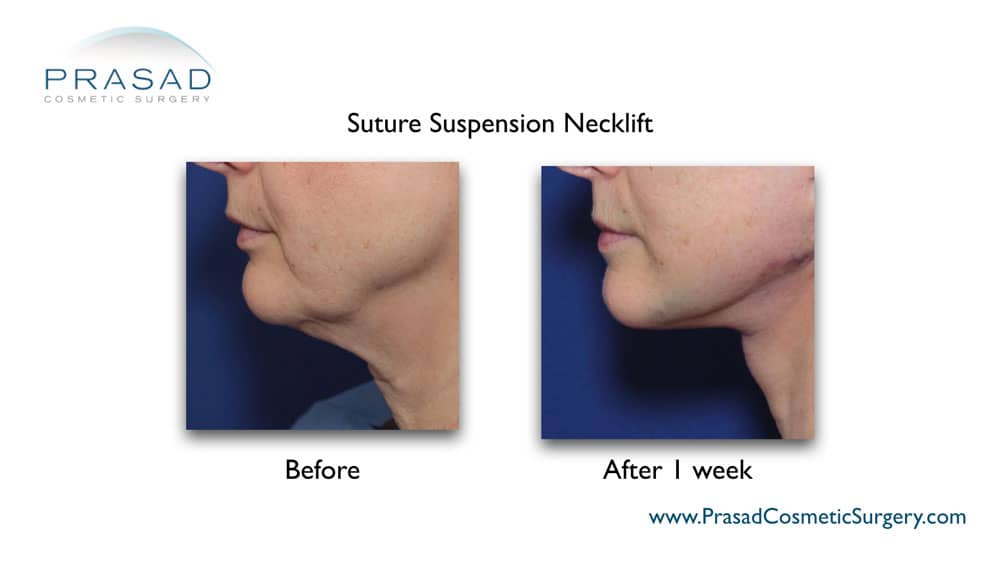
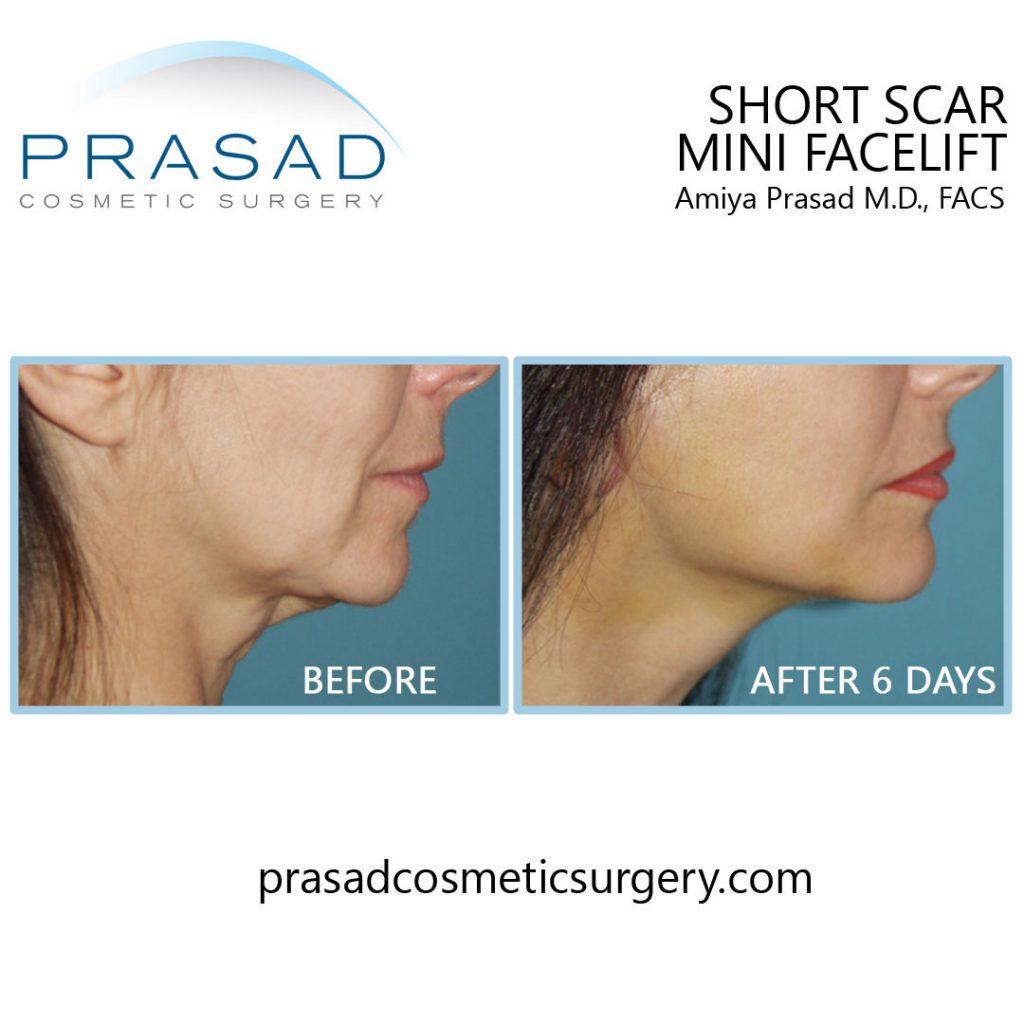
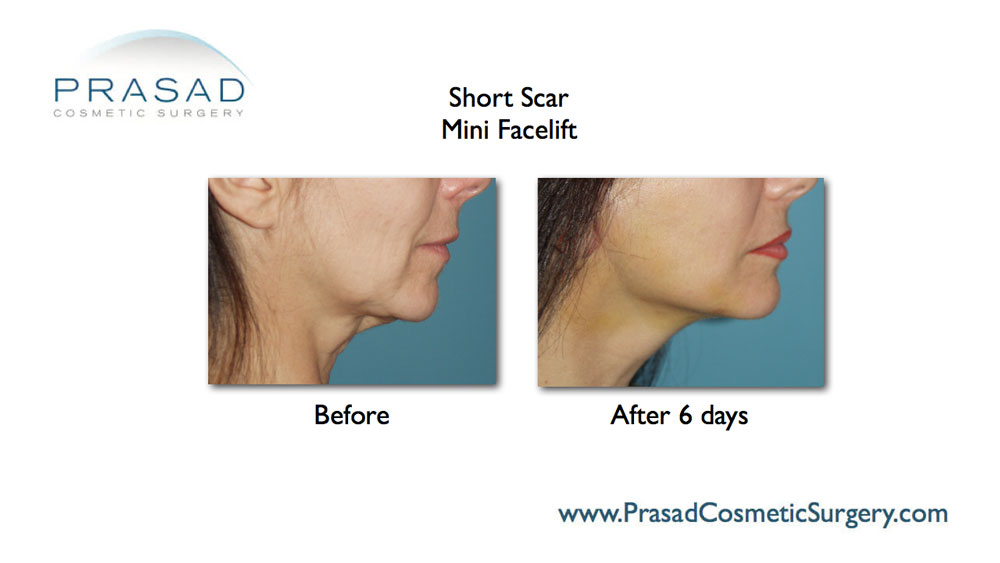
Once completed, it tends to hold very well and can last between 5 and 10 years. If platysmal bands are present but there is no excess skin, a neurotoxin such as Botox, Dysport, or Xeomin can improve their appearance. If there is excess skin and the platysmal bands are lax, the platysmal bands can be modified surgically, which is typically done during a face and neck lift.
Face and Neck Lift
In our practice, we do all face and neck lifting surgery under local anesthesia with LITE™ IV sedation. This is in contrast to general anesthesia, which is frequently a deterrent for many patients. Local anesthesia with sedation allows for a faster recovery, allowing people to return to work sooner.
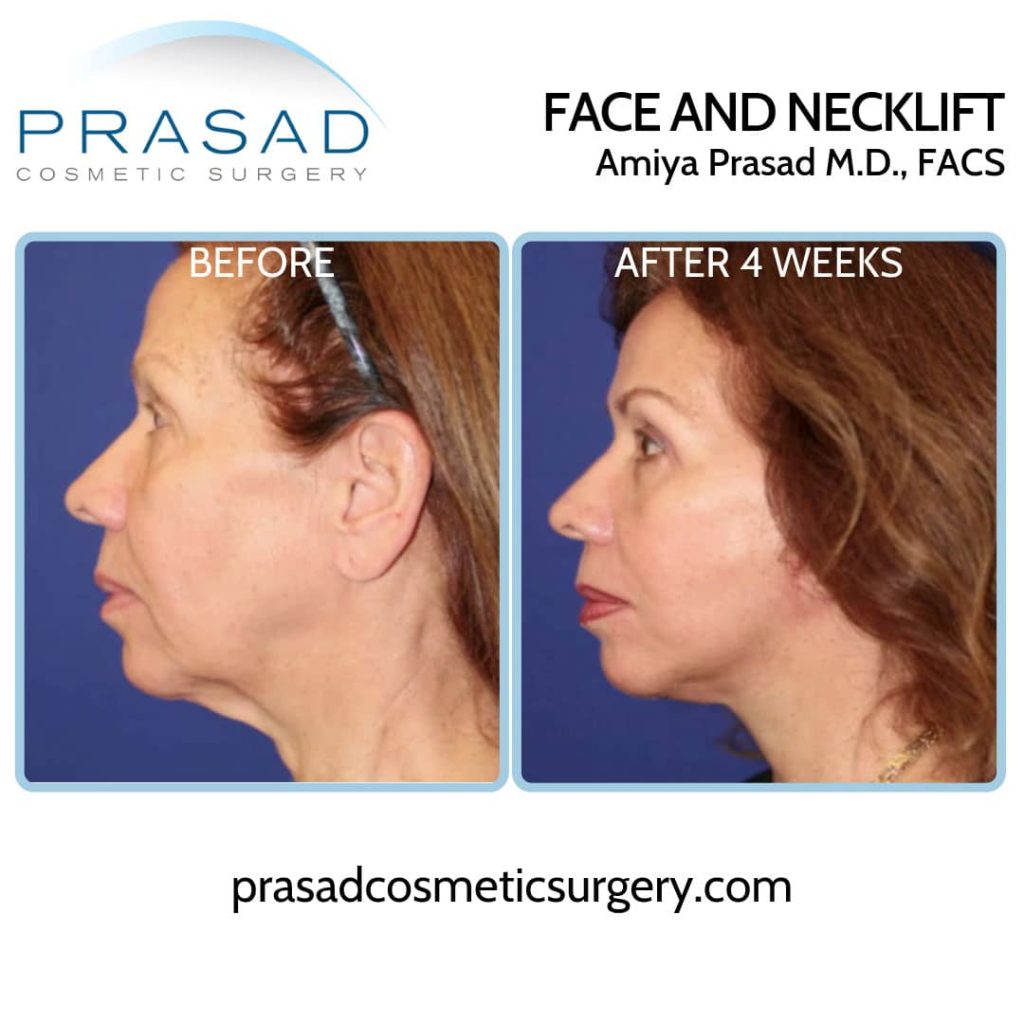
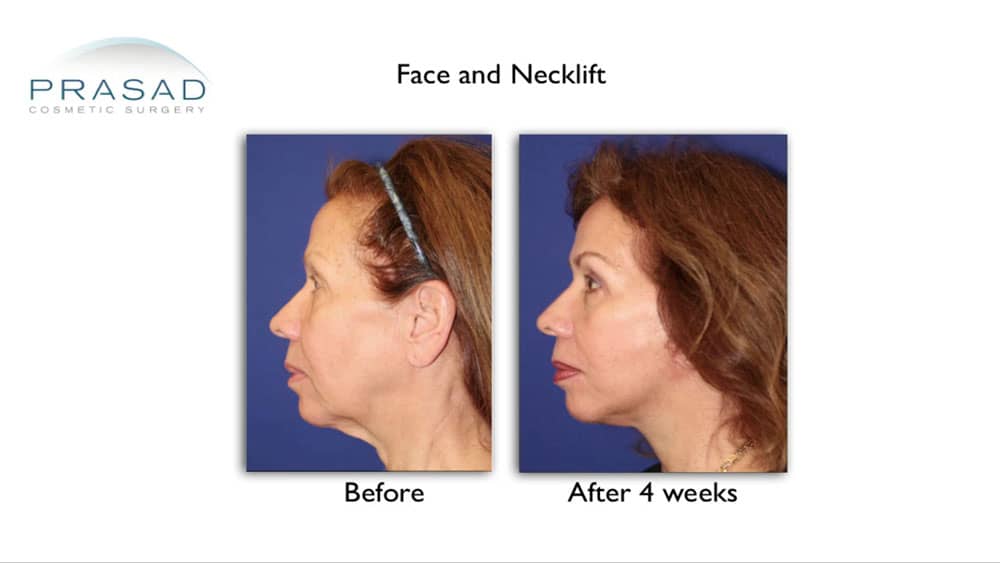
The contribution of bone volume loss to neck skin laxity is an important concept that is often overlooked. Implants or long-lasting injectable fillers placed at the bone level can have a significant impact on your appearance, especially if you have limited laxity and a loss of jawline definition. The relative appearance of the skin under the neck becomes less significant as the cheeks, jawline, and chin become more defined.
Conclusion:
The decision to perform a procedure or procedures to improve the neck is based on a proper diagnosis and an understanding of the benefits of various interventions. What we do is constantly evolving, and being able to perform the full range of procedures, from non-surgical and minimally invasive, to advanced surgical procedures, or a combination have proven to be successful approaches in my practice. Thank you for your question, and I hope you found this information useful.
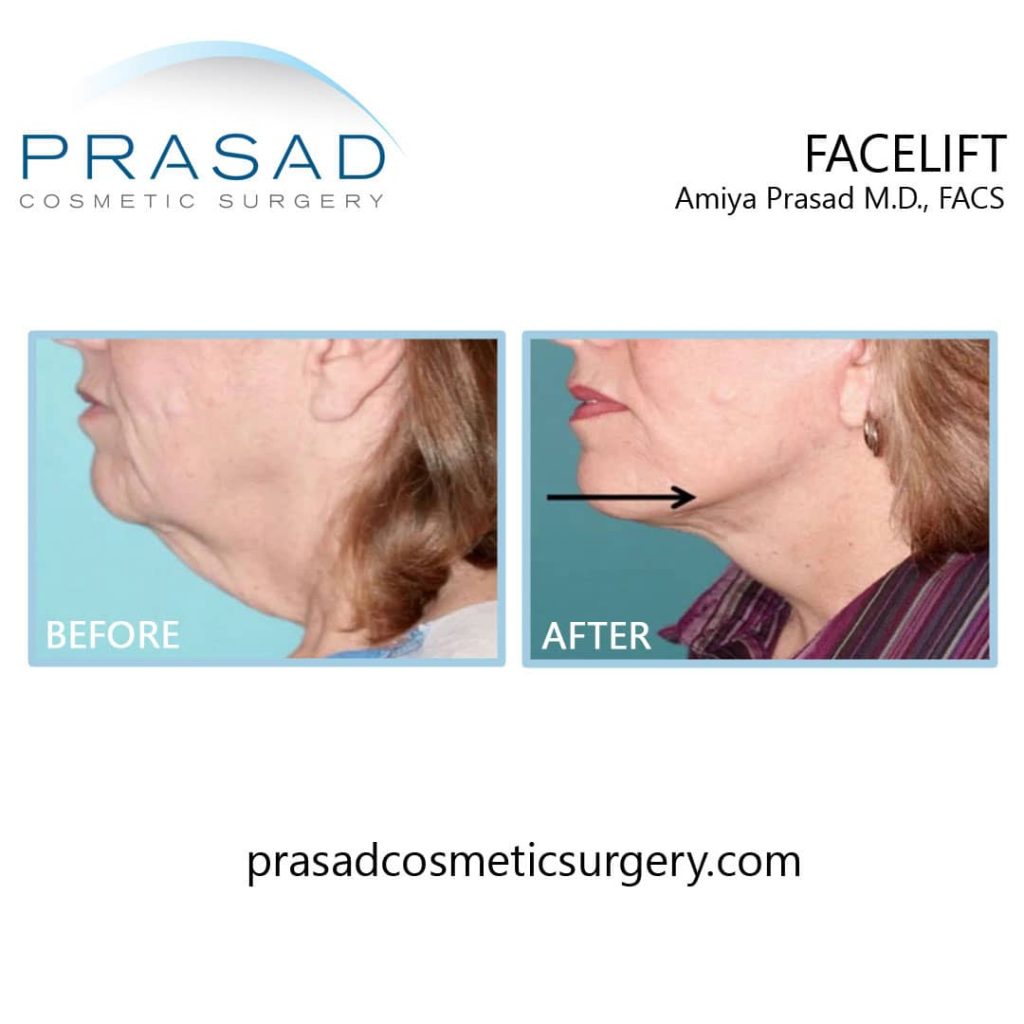
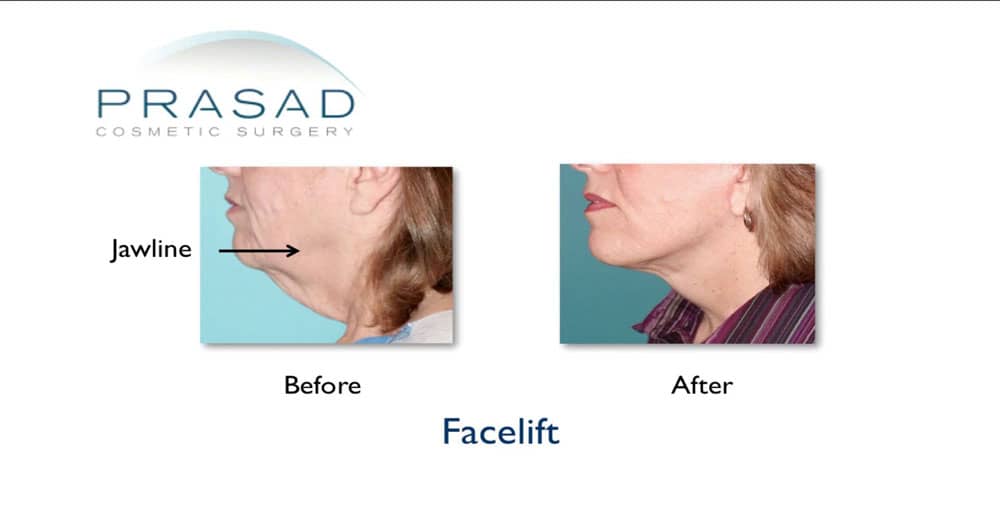
Neck Lift - NYC and Long Island, New York
Dr. Amiya Prasad is a Board-certified cosmetic surgeon and Fellowship-trained Oculofacial Plastic and Reconstructive surgeon. He’s been in practice in Manhattan and Long Island for over 25 years. A core focus of his practice is to help people with changes associated with facial aging. We do a lot of skin and facial rejuvenation procedures in our practice, including, surgical facelifts, neck lifts, as well as minimally invasive and non-surgical treatments.
To schedule a consultation contact any of our offices at (212) 265-8877 for the Manhattan, New York City office; (516) 742-4636 for the Garden City, Long Island office; or (703) 356-1336 for the Vienna, Virginia office or fill up the form below.
